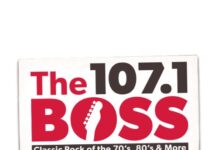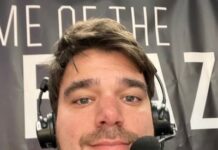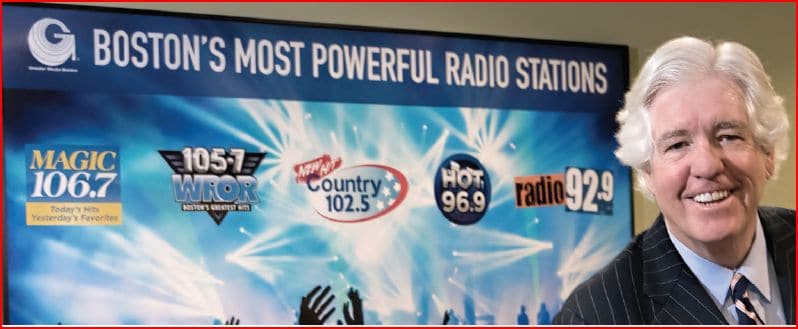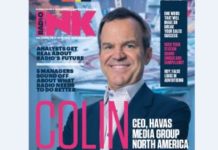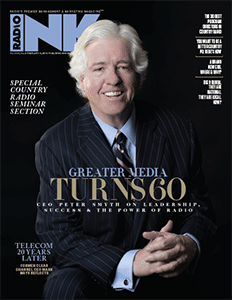
2-8-2016
BY EDITOR-IN-CHIEF ED RYAN
PHOTOS:
LEO GOZBEKIAN PHOTOGRAPHY
617-923-7666 | WWW.LEOG.BIZ
You would think a company that’s been around for 60 years would have had more than two CEOs. But that’s not the case at Greater Media: Peter Bordes, who founded the company, was the first CEO, and Peter Smyth runs the company now, and has since 2000. Greater Media was founded in 1956 with one radio station in Southbridge, Massachusetts by Bordes and his Yale classmate Joseph Rosenmiller. Before Bordes passed away in 1999 of cancer, he crafted a winning vision for the company that continues today. Peter Bordes, Jr. tells Radio Ink that he can’t believe it’s been 60 years. “It’s so thrilling!” he says. “I wish my father was alive today to see what the company has become. As an entrepreneur myself, I wish I could talk to him today about it, how he and Joe Rosenmiller started with $50,000 and went all the way — it is so amazing.”
Today the privately owned Greater Media owns 21 AM and FM radio stations in Boston, Charlotte, Detroit, Philadelphia, and New Jersey and a group of weekly newspapers in central New Jersey. The company is stable. Revenue is growing. Employees are happy. And that’s all a result of the Greater Media culture. People enjoy working there and creating great local radio for their communities. Peter Bordes, Jr. says, “Despite all the different economic and industry changes that have taken place over the past 60 years, the company has continued to maintain the integrity that serves as the foundation on
which the company was built and continues to stand for today.”
The vision flows down from CEO number two, Peter Smyth, who began his career in broadcasting in 1977 as an account executive with WROR-FM in Boston. He was quickly promoted to general sales manager, a position he held for the next five years. In 1983, RKO General, the parent company of WOR, recruited him to serve as GSM of its New York stations, where he directed sales operations until his departure in 1986 to work at Greater Media. Smyth was hired to turn around Boston’s WMGK — at that time nicknamed “Tragic Magic.” He made the station a huge success and became Greater Media’s CEO in 2000.
About Smyth’s taking over for his father, Bordes, Jr. says, “I think that Peter not only does an incredible job running the company, but also helps keep the focus on what makes radio great. I have the highest regard for him. To step in lockstep with my father and continue to build on everything he built with the values and integrity of the industry, while carrying that torch forward without sacrificing anything that my father put into the company, is not an easy feat in today’s ever-changing environment.”
Here’s our cover story interview with Peter Smyth about his rise to the top at Greater Media and the company’s celebration of 60 years.
RI: Tell us why you got into radio. What was your thinking?
Smyth: I grew up in New York. My father was a banker. He banked for a lot of radio companies. As a young kid, my mother used to listen to WOR all the time. I used to have a transistor radio and was fascinated by all the different places it could take you to, the things radio could do. I just was really intrigued by it. I went through school and then to Holy Cross, which is not a communications school. I read a lot about radio. When I got out of school, I worked for the Nestlé company; I was a marketing financial analyst. I kept listening to the radio, and I kept thinking about all the different things you could do, and the entrepreneurial opportunities that are afforded to you, what you could do for your communities and your cities. And I just thought, “Damn, I’ve got to go do this.” So I interviewed in Boston and New York. Eventually, I got hired by RKO General in Boston as an AE. I was fired up. I went to Boston and worked with the original WROR, and I just loved it. I came to it with a little bit different background, because I had worked for a major consumer-goods company and I had a great understanding of inventory and product placements and shelf spacing and all these different things that you hear about today that are so important. So when I would talk to a car dealer or furniture dealer, I would ask them how often they turn over their inventory and how could we help them. I became local sales manager, then general sales manager, and my career took off from there.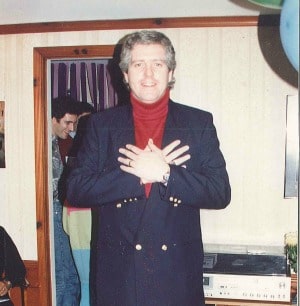
RI: Was there somebody along the way that you would say gave you your big break in radio?
Smyth: I think the guy that really gave me my first break was Warner Rush. I knew Warner Rush as a kid. My father and he played golf together. I always used to talk to him about getting into this business. So when I went to talk to RKO, I leveraged that relationship. Then Rush introduced me to Norman Knight, who probably had the most profound impact on my life. If I had to choose two or three people, they would be Norman Knight, Peter Bordes, and Herb McCord.
RI: Tell us how your relationship with Peter Bordes started.
Smyth: I was introduced to Peter through Herb McCord. In 1986, Peter offered me a job to go to Boston and run Magic [WMJX-FM, Magic 106.7]. I had never run a radio station. I was 32 years old. He said, “You’ll figure it out. Go do it.” It was a great opportunity. What I loved about that company was that their objectives aligned with what I wanted to do. I wanted to have an entrepreneurial edge to my career, which Greater Media afforded me. I wanted to have local presence in a marketplace, which Bordes was all about. These were real diehard broadcasters. It was just a very fortuitous opportunity for me to be in that environment. It was Magic that really got me going.
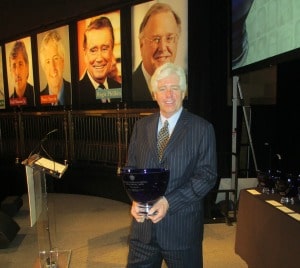 RI: What was it about you that you believe made the people around you think, “OK, this person needs to be in management.”
RI: What was it about you that you believe made the people around you think, “OK, this person needs to be in management.”
Smyth: I think what they saw was that I kept challenging myself to make things better. I think what they liked was the innovation I have. And lack of fear. I made a lot of mistakes, and it was great to be at a company where you could do those things. But I think what they liked was my curiosity and my ability to get things done. Instead of watching things happen, I made things happen for them. That allowed me to become extremely successful in the organization, and not just because of me, but because of the men and women around me. I was able to attract great people and keep great people with me. It’s all about the people.
You can talk about balance sheets until you’re blue in your face. A lot of the people that are there today have been with me a long time. And I’m very proud of what they do because without the men and women of Greater Media, there would be no Peter Smyth. I owe them a big debt of gratitude. I think what Peter Bordes, Sr. was impressed with was the people I brought to the table. I was never afraid to hire somebody that could take my job. I thought if I did that, I could raise the bar even higher. I constantly tried to find people like that.
He gave me great autonomy. When I went to Magic, he said, “The station is not doing well.” When I got there, I read the P&L and thought, “Wow.” The next day, the book came out, and it was a 2.4 or a 2.5. Herb McCord’s great line was, “So now you’ve got the books. You want to stick around for the movie?” I thought, “Sure, that would be fun.” It was the freedom they gave me to figure it out. It taught me how to really run a business. I looked at the economics and the allocation of resources and how I was going to turn the station around. It was all about finding great people. That’s what the station needed, people, and a culture of winning. We had to believe that we were not “Tragic Magic.” We owned and operated like we were going to be the best, and we would strive constantly to get better. If something went south, we all went south. I would say to them, “I’m never going to ask you to do something I wouldn’t do.” I remember during the recession, around 2009, going out to Detroit when GM and others were going under, I would go out there and sit in the sales pen and look at the individuals and they would tell me about their neighbor’s husband being laid off or their car being repossessed and their house being taken. I would look at them and say, “You’ve got to believe that I believe we’re going to get through this.” And we did. But it was tough. It was those experiences that taught me that you had to be locally orientated and you had to be able to understand where they were coming from at every level. Starting as an AE and working my way up through a company was one of the best educations I ever had.
RI: How did you turn Magic around?
Peter: I built a sales organization that was incredibly strong. I hired Bob Harper, who was an outstanding research guy specializing in AC. We drew up a business plan to attack the problems and laid it out for everybody in the organization. Then we tried to hire the best people we could find and stay committed to them. When things go bad, the first thing you hear is, “We’ve got to fire somebody.” My response is, “We ain’t firing anybody.” If we believe this is the best team we can put on the field, we’re going to go to the Promised Land with them.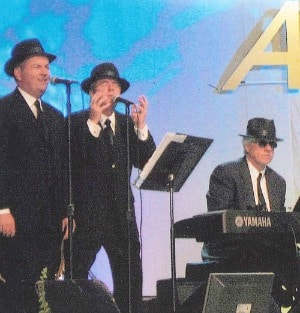
The station was a loser. It was called “Tragic Magic.” It was over. I would tell people, “No, it’s not. This is where we’re going, and we’re going to get there.” I made sales calls with them. I would be in programming meetings. I would be on the street with them. I would be any place anybody would listen to me. I would talk about what role we were going to play in the Boston community, with different charities. We got recognized by politicians and some of the city elites, and that just elevated the whole culture and our business. Every time we would go up in the ratings, it was like the hallelujah choir came out. It was a great experience, and something I will treasure for the rest of my life.
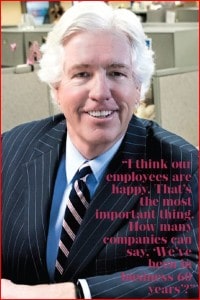 RI: So around 2000, you’re getting close to running the entire company.
RI: So around 2000, you’re getting close to running the entire company.
Smyth: For 15 years, the company went through some severe losses. Tom Milewski died of lung cancer at 49 — he was Peter’s general counsel and oversaw the radio group. Then, as Tom was dying, I took over the group, reporting directly to Peter and [then-president] Frank Kabela. Then Peter developed pancreatic cancer. He was probably only alive another year. It was tragic. We lost two people in a span of two or three years.
The Telecom Act had just passed and everybody thought Greater Media was definitely going to be for sale, especially with Peter gone. It was my job to make sure we held the company together and make sure we didn’t lose the talent we had. I would meet with Peter every other week. More and more, he gave me more authority. I will tell you one great story about Peter Bordes. When I first got the job, I said to him, “Peter, you want to give me a job description?” He said, “You want a job description?” I said, “Yes, I should have one.” He said, “I’m going to tell you what your job description is.”
He takes out a blank piece of paper and draws a box on the paper. He said to me, “I want you to imagine that there’s 12 puppies in this box.” I said, “OK, I’ve got that.” He said, “This puppy just jumped out. You pick it up and put it back in. Your job is to try to get all 12 of those puppies in the box at the same time. They’re going to keep jumping out. You better put that puppy back in the box. That’s your job description.” I said, “That’s brilliant.” My job was to make sure I kept all those little puppies in the same box at the same time. I said, “I’ve got it.” He said, “Do you need any more?” I said, “No, I’m all set.”
RI: Was Peter Bordes in favor of deregulation?
Smyth: When the Telecom Act hit, I have to say that Peter and a group of other guys fought it very hard. They thought it was a bad thing for radio. They thought the entrepreneurial spirit would be lifted from radio. They thought it was a business for people to come in and raise some capital and buy some radio stations and build a local business. They wanted to see that continue. So they were not in favor of the huge money coming in and the consolidation. Peter put up a million dollars of his own to try to stop that, but to no avail. It didn’t succeed. So, at that point, we had to learn how to re-ride the pony.
RI: What is your vision for growth?
Smyth: Looking at the crystal ball, what we have to do is let the dust settle a little bit. I don’t know what’s going to happen in the next 12 to 18 months. The important thing for us is to be strategic and opportunistic at the right prices. If the assets are at the right prices, it’s going to make sense to us. The last thing you want is to do a bad deal in a lousy market. I don’t want to do that. I want to protect the balance sheet that we have and protect the company. I want to continue to look into our digital business and build that stronger.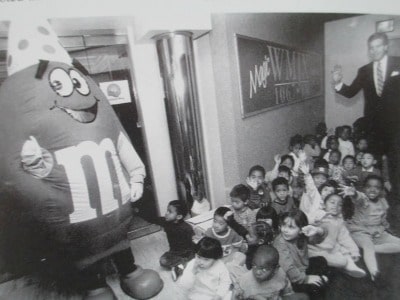
We need to invest in research. We need to make these radio stations as strong as we can with marketing tools, research, and music research. I want them to do more digital research. I want to understand the sector better. I can only speak for myself; I don’t think we understand it as well as we should. That’s not any shot at anybody in our company; I should say, I don’t understand it as well as I should. I think we have to continue to figure it out. Because nobody, in my humble opinion, has the secret sauce of what the relationship between the two is yet. I think if a good opportunity came to us, yes, we would do it.
RI: What is your philosophy on how to treat people? Managers can have a positive or negative impact on an employee that can last a long time.
Smyth: I want to treat people the way I want to be treated. If Lee Bordes [Peter Bordes’ wife] woke up this morning and said, “I don’t like you, we need to make a change,” I would want her to treat me with dignity and let me resign and give me a compensation package that was equivalent to the contributions I made to the company. Change is going to happen. You can’t stop that. If the economy continues to contract, businesses are going to contract. It’s part of business. Nobody wants to do those things. Nobody enjoys that crap. I hate that kind of stuff. But
I want to make sure that every family, every man and woman that would be affected by that, would be treated with dignity, with respect, and know that they had made a great contribution to this organization and that I was incredibly grateful to them. I would make sure they were treated the same way I want to be treated if somebody said, “We don’t need a CEO of Greater Media.”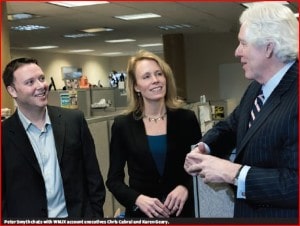
RI: What is radio’s problem these days?
Smyth: I believe this strongly: The consumption level of radio has never been better. We just have to talk more about the strength of the industry, be more proactive versus reactive. When I look at the valuations of some of these pureplays, and I see no cash flow — when I wasn’t making money, I was called a dirt bomb. They don’t make any money, and they are heroes and they get more money. It’s the most unbelievable thing. We have positive cash flow. It’s great free cash flow, with great margins. The future is going to be in solutions-based selling. The national business is going to continue
to decline. The economy is still pretty rough. We haven’t really had good growth over the past seven years. What I have found success at in our company is placing more emphasis on our local sellers, coming up with great ideas and great solutions for our clients — I know that sounds like the buzzword. Our over-the-air is very powerful. Our local personalities make the difference. What makes Greater Media a different company than all these pureplays is that we have all these local personalities talking about local issues in their cities. Preston and Steve in Philadelphia, Loren and Wally in Boston, Dave and Chuck in Detroit — these guys are doing 30 shares because they’re providing the listener with compelling information. We put our great content into podcasts or video. Listeners can time-shift, listen whenever they want. You have to adapt technology and bring it into your wheelhouse and then challenge yourself to figure out how it works in the consumer’s life. It’s not what we want to do, it’s what the consumer wants. We need to understand consumer behavior, how they use our stream, how they use our podcasts and our videos. How does that all fit into broadcast media in the 21st century, and how do we market that more efficiently?
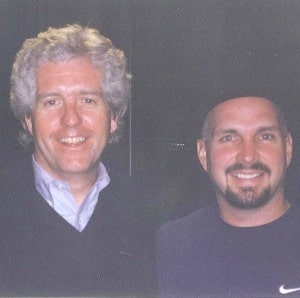 At the end of the day, it goes back to my retail days in 1977 at WROR. When I went into the car dealer on Monday morning after we ran a campaign, if I didn’t sell 12 cars, based on the multiples that we had for advertising dollars to sales, I was gone. I had to make sure we sold those cars. What I look at today, as long as radio can continue to move product the way it does, as long as you continue to do that at a better rate than most other media, you’re still going to be a valued partner to your client. And that’s what you have to show them. You have to go back and show them a recap of exactly what you did and the results. Everybody is so data-driven. But at the end of the day, you’ve got to sell the stuff. You have to be able to move product. I think radio does that more effectively than any other medium out there.
At the end of the day, it goes back to my retail days in 1977 at WROR. When I went into the car dealer on Monday morning after we ran a campaign, if I didn’t sell 12 cars, based on the multiples that we had for advertising dollars to sales, I was gone. I had to make sure we sold those cars. What I look at today, as long as radio can continue to move product the way it does, as long as you continue to do that at a better rate than most other media, you’re still going to be a valued partner to your client. And that’s what you have to show them. You have to go back and show them a recap of exactly what you did and the results. Everybody is so data-driven. But at the end of the day, you’ve got to sell the stuff. You have to be able to move product. I think radio does that more effectively than any other medium out there.
RI: What are you hearing from your markets? How is the economy going, and how do you feel radio is doing in this economy?
Smyth: To the local retailer and to the food brokers and to other sectors of the country, they’re starting to realize this is a great medium and it does sell product. What most radio companies are realizing today is that we can’t be as dependent on national business as we were before. That’s not a shot at Katz or any other person in national radio. It’s just become more and more challenged for them. We have to become more community- and local business-focused. We have to understand that local business is better. We have to educate people. When I went to work for Greater Media, I went to work here because I wanted to be a better businessperson. I wanted to learn more. I didn’t want to go there, take a list, and ysta for 18 months. I wanted a career. I didn’t need a job. I could get a job. But I couldn’t get a career. Today, what we have to show young people coming into our industry is that we want to give them a career. When people come to Greater Media, I say to them, “I want you to
have a career in this industry. If somebody works for us for 17 years and has a better opportunity in another city, I’ll ask them, ‘Does this build your career? Does this help your family? Then go do it.’” That environment creates winning.
RI: Sixty years. That’s a big deal for a company. How is Greater Media doing?
Smyth: Greater Media has been Greater Media for 60 years this spring. I’ve been there for 30 years, and when I realized that the other day, I almost fell off my chair. We’re doing fine. Our business is healthy. Our stations are good. I think our employees are happy. That’s the most important thing. How many companies can say, “We’ve been in this business 60 years”? We’ve had great successes.
We’ve done a lot of interesting things. We put a lot of different kinds of radio stations on the air. I think we made the communities better than the way we found them. I think we’ve created a culture that accepts the individual and makes sure the individual can be challenged to be the best they want to be inside the organization. And we give people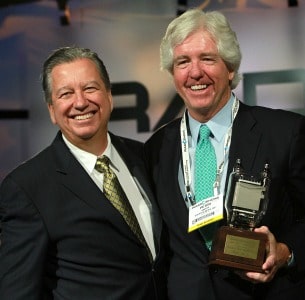 the freedom and the tools to achieve those things. We try to keep that spirit of entrepreneurialism alive, without a lot of mandates or nonsense. We let people make decisions at the local levels. We have strategic and economic goals we want them to hit, but I defer 90 percent of the time to the managers. At the end of the day, it’s their business. If you have 5,000 people from an office in Boston saying, “Do this,” or, “Go right,” that doesn’t work. Hire great people and empower them. Our EBIDA is going to grow this year. I’m happy with that. Our top line is going to grow this year. It’s not growing like it did pre-crash levels, but we’re growing. Every year our EBIDA has gone up. We’re a healthy company. We’re not bleeding in debt. We’re financially conservative. I will continue to run it financially conservatively as long as I have the distinct
the freedom and the tools to achieve those things. We try to keep that spirit of entrepreneurialism alive, without a lot of mandates or nonsense. We let people make decisions at the local levels. We have strategic and economic goals we want them to hit, but I defer 90 percent of the time to the managers. At the end of the day, it’s their business. If you have 5,000 people from an office in Boston saying, “Do this,” or, “Go right,” that doesn’t work. Hire great people and empower them. Our EBIDA is going to grow this year. I’m happy with that. Our top line is going to grow this year. It’s not growing like it did pre-crash levels, but we’re growing. Every year our EBIDA has gone up. We’re a healthy company. We’re not bleeding in debt. We’re financially conservative. I will continue to run it financially conservatively as long as I have the distinct
honor to run it, because I believe that provides a great benefit and stability to the employees — and it gives great stability to the family, and I can sleep at night.
RI: What would you consider to be one of your biggest highlights over the years?
Smyth: Some of the highlights for me are going into the Country Music Hall of Fame, winning Marconis at WMMR several times, the amount of money we’ve raised in Pennsylvania with Camp Outs for Hunger, the work in Boston we’ve done for breast cancer. I think Magic winning a Marconi in Boston was an incredible night for me. I couldn’t get anybody to buy time on Magic, and there it was being recognized as one of the top ACs in the country. It was just mind-blowing to me.
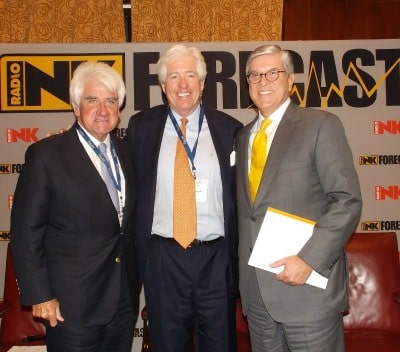 Making country work in Boston when everybody told me it would never happen, that I was daydreaming, that maybe I had lost it. The newspapers in Boston thought, “This guy can’t create Magic twice.” It worked out over time. When we put on an FM talk station in Boston, it was killer. It was great. We hired a great morning show. Being able to bring in a new morning show in Detroit and see it be so successful. That’s great stuff. That’s just great stuff.
Making country work in Boston when everybody told me it would never happen, that I was daydreaming, that maybe I had lost it. The newspapers in Boston thought, “This guy can’t create Magic twice.” It worked out over time. When we put on an FM talk station in Boston, it was killer. It was great. We hired a great morning show. Being able to bring in a new morning show in Detroit and see it be so successful. That’s great stuff. That’s just great stuff.
And when I see people’s careers grow and their families grow, the smiles in the buildings. These people have fire in their eyes, the things they want to do. That’s what it’s all about to me. When I think of the great moments of this company, I will always look back at the imprint Peter Bordes had on it, the incredible vision he had to buy FM stations. He bought NTK in Philadelphia for $700,000. Magic in Boston for $4 million. I’m very proud of the legacy he gave us, the vision he taught me. He said, “Here you go, kid. Go do this.” I will be forever grateful for that.
RI: How much longer do you want to be running a company like this?
Smyth: Everybody asks that question. I always wonder when it’s time to go because I want to make sure the next generation of leadership steps up. I’ll never get out of the radio business 100 percent. I thought what Dan Mason did was great. I love him. He’s a very dear friend of mine. He told me he was going to do that after one of the radio shows. We were walking uptown somewhere. He told me he was not going to renew his contract. And I said, “What?” He said, “Peter, it’s time.” It was like what Bordes said to me: “I need a new generation of men and women to run this company, and you’re the guy.” There’s going to come a time when I have to say, “You know what? It’s time.” I will never leave the space. Never. I will die with a transistor radio plugged into my ear. I still do it every night of my life. I did it when I was a little kid, and I still do it now. There will be a time when I think it’s time for some of the younger people to step up. It’s only right. Some of us have got to get out of the way and let some of the new blood come in.
For more information about Greater Media go to www.greatermedia.com

